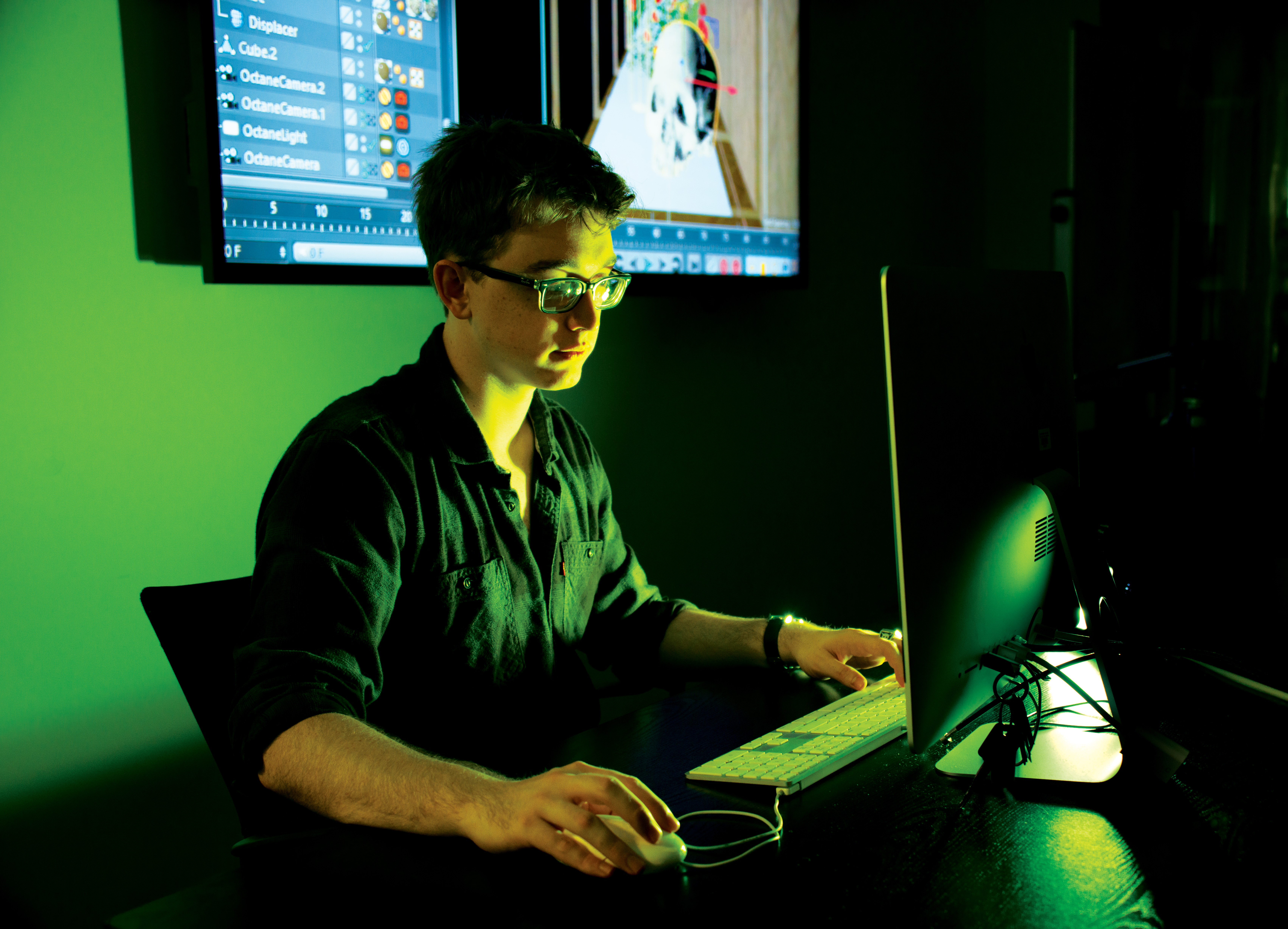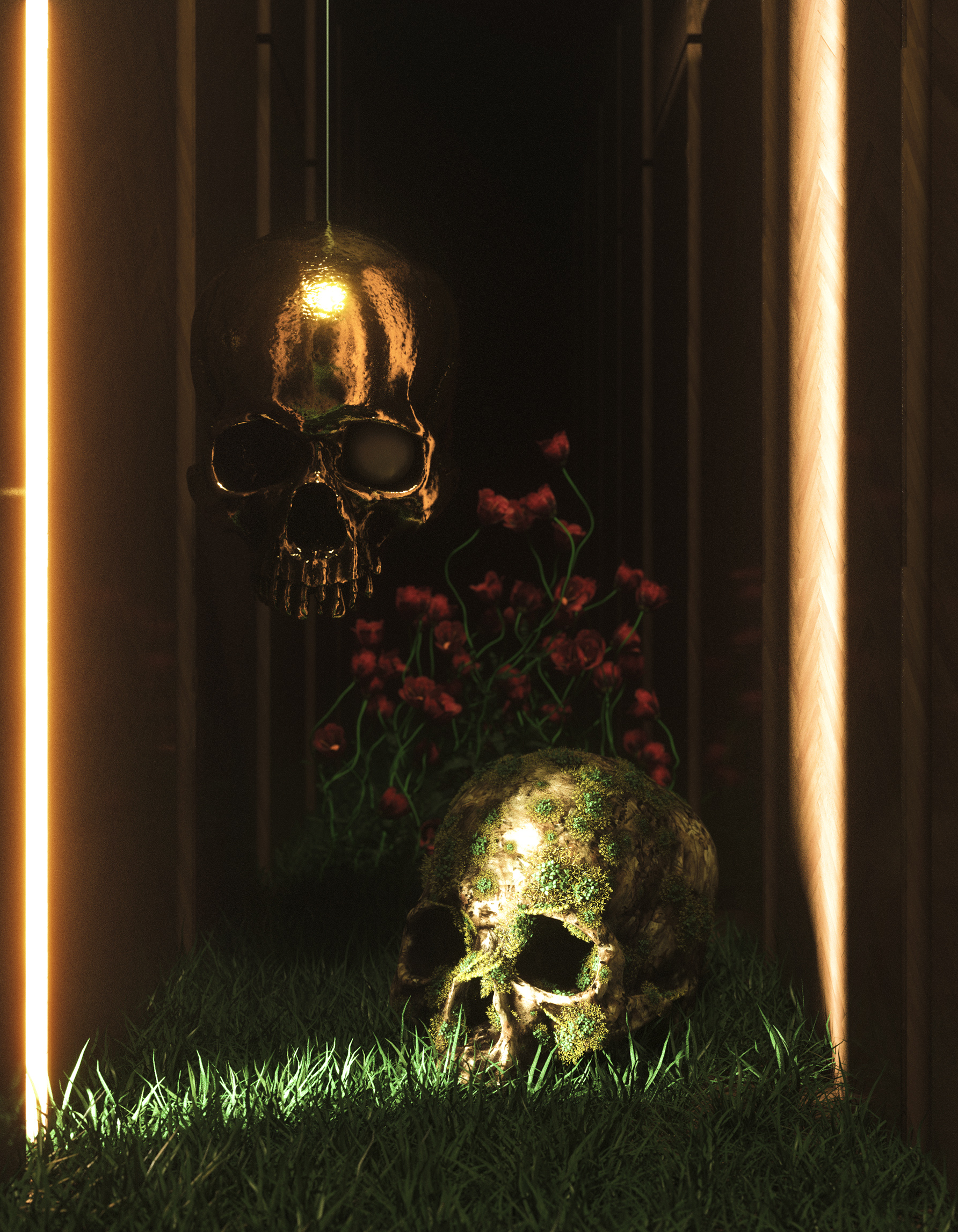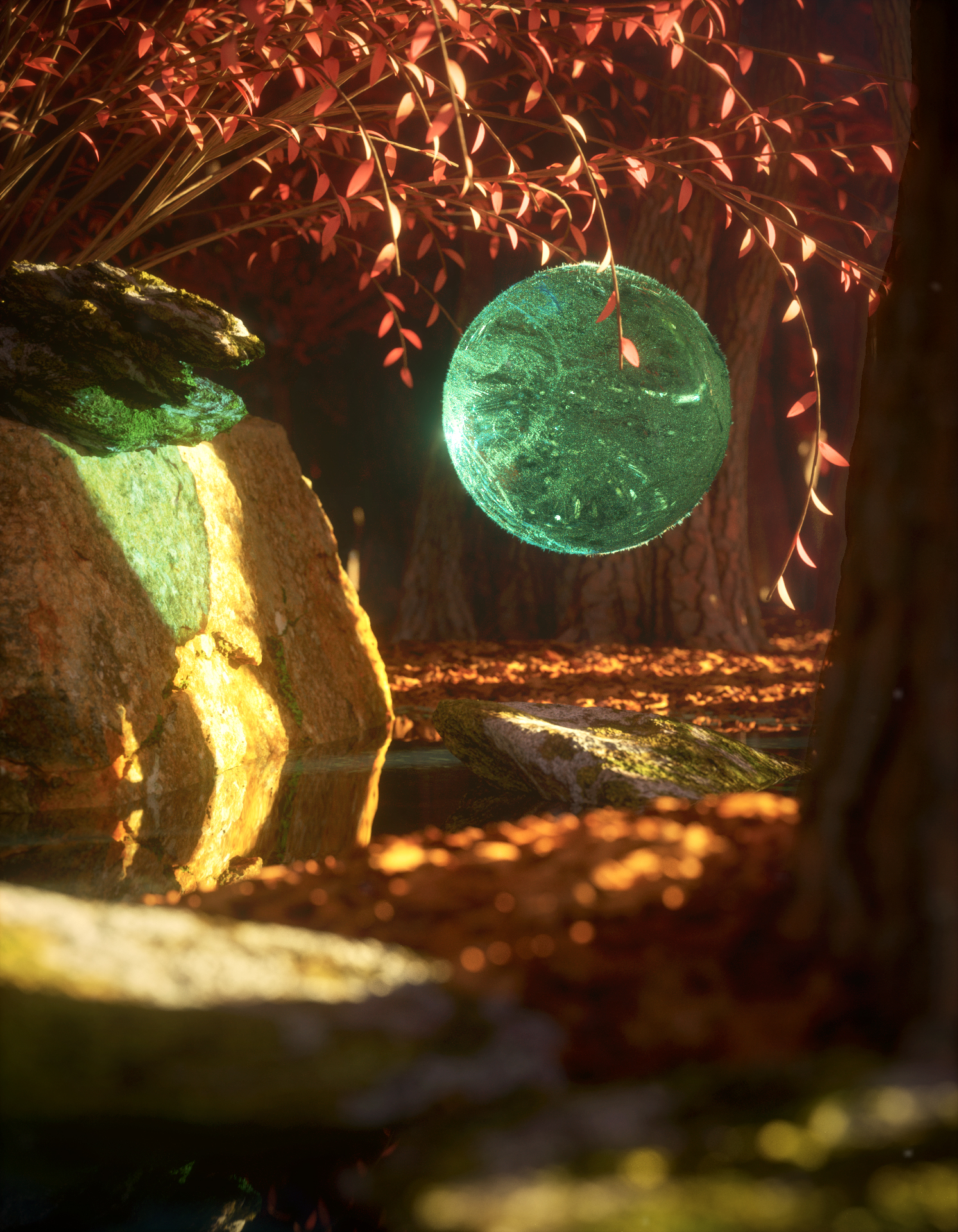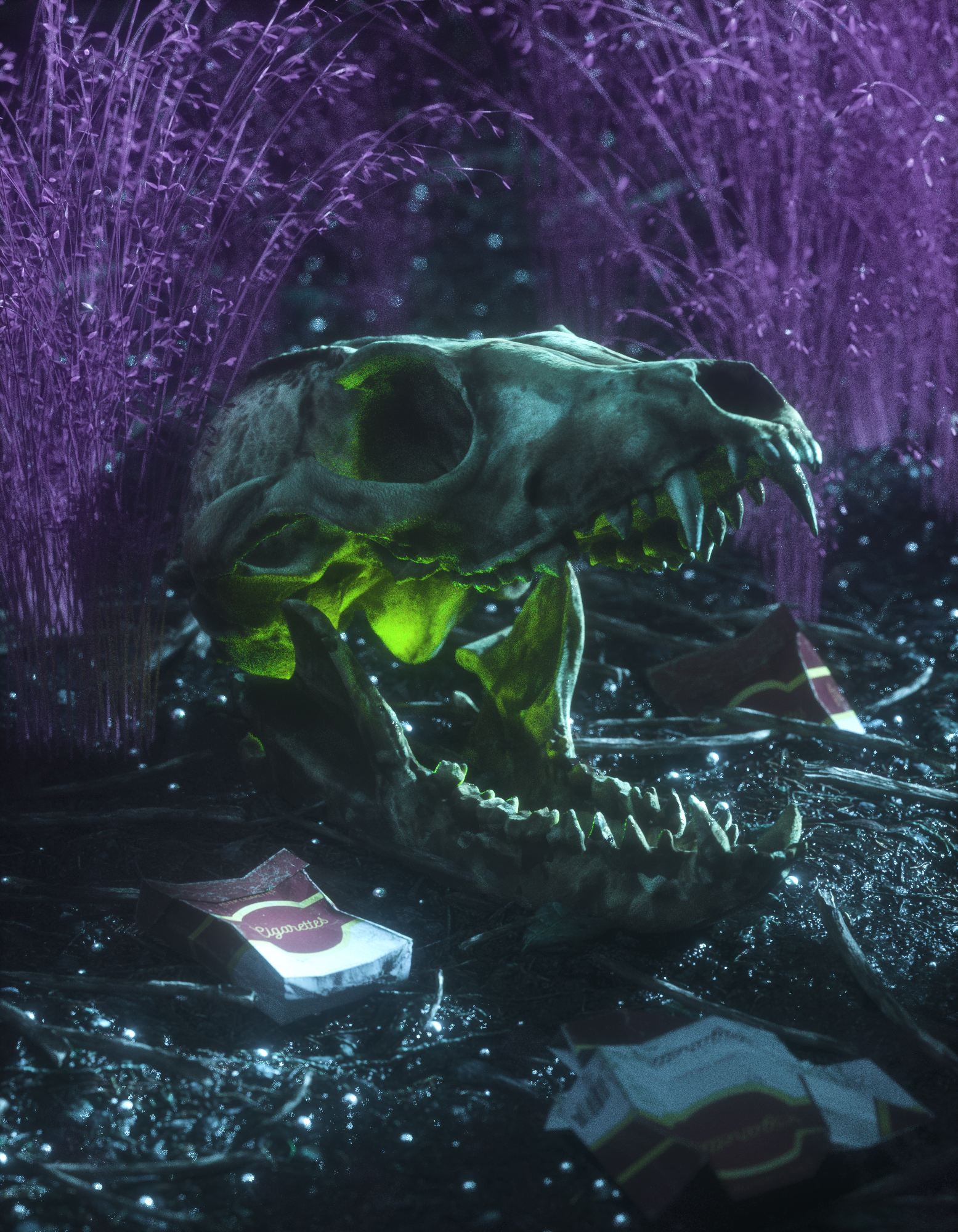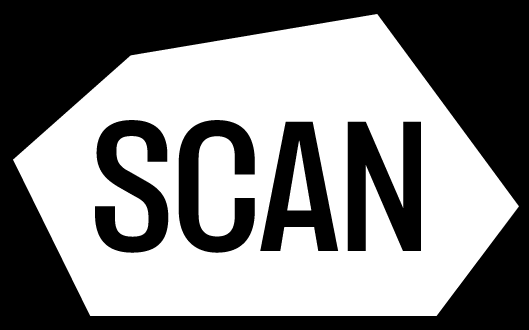INTERVIEWED BY ALLISON BOLT
PORTRAIT BY MARIAN HILL
When was the first time you experienced art, and how did it impact you?
The first time I experienced art that impacted me was on a trip I took to Italy when I was 16. I purchased an $80 point-and-shoot camera from a vending machine just before the flight took off. From that moment to the moment we returned home a week and a half later, I took around 4,000 photos — of which maybe 20 were worth keeping.
Having the camera forced me to really pay attention to the world, and to use my personal perspective to frame what I saw. It also helped to be surrounded by one of the most artistically influential countries of all time. Everywhere we went masterful artwork flooded the view. I found that I enjoyed this act of framing and capturing so much that I continued to photograph even after I returned.
What made you want to pursue visual effects?
During my high school career, I was dead set on becoming an engineer. However, as the time approached to solidify my plans, I found myself lost. I wasn’t excited about where that path was leading me. I began to self-evaluate and discovered that I was just doing it because I didn’t think anything else was viable. Truth be told, the only reason I saw engineering as a possibility was because it was the first class in public school that required a genuine sense of critical thinking and problem-solving. I concluded that I loved these things — but that didn’t necessarily mean that I wanted to be an engineer.
What I did love was art; movies, games, music, all of it. I felt within myself a calling toward these professions but I didn’t quite know where I’d fit in — someone with little-to-no artistic experience whatsoever. Armed with this new insight, I talked to my parents about what else there was and found the visual effects program. I did my research and saw many of those same qualities that I loved from my high school engineering classes. Plus, it didn’t require drawing expertise — a huge bonus for me. I took the leap of faith and joined.
What challenges have you faced so far as you pursue visual effects?
For me, the biggest thing is mindset. I used to be very insecure and unwilling to practice or take leaps because of how much I hated being bad at something. This fear led to me not getting better. Eventually, I just had to change my perspective on failure and learn to see it in a more positive and constructive light.
What is your creative process like?
The most important initial step is preparation. Really discovering, iterating on and fleshing out a raw idea is paramount. I try to take as much into account as possible and cover as many bases as I can think to. This allows for a greater amount of control. If I know exactly what I’m going into the lab to make, then I have a lot less nasty and time-killing surprises. They’re still there — the nasty surprises — but there are far less if you plan. I also keep in mind the time to explore — if I can afford it. Some of the best artistic decisions I’ve made have been from allowing myself a couple of hours to try something new.
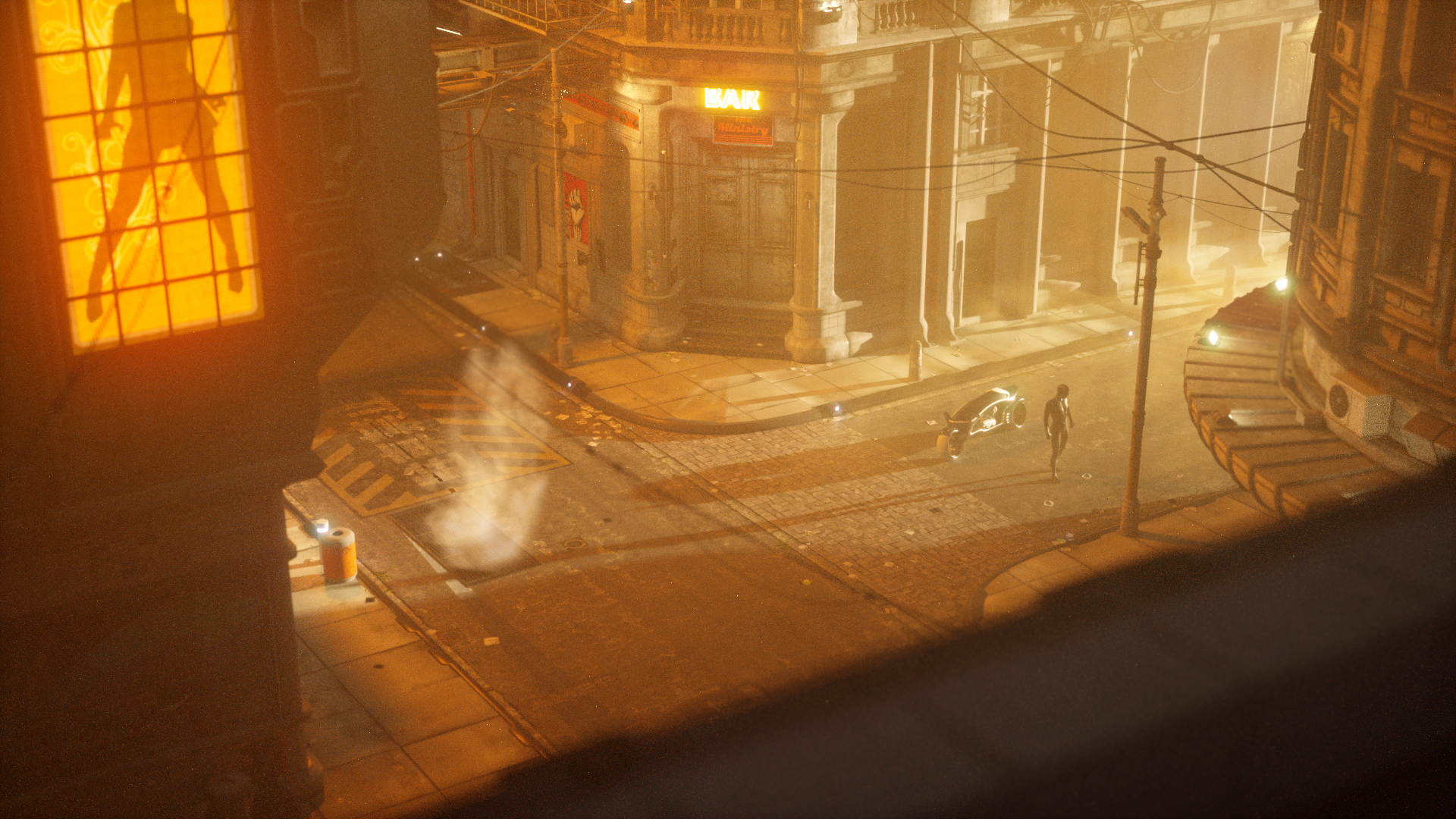 You have a focus in lighting. What drew you to this?
You have a focus in lighting. What drew you to this?
I have a love of photography and cinematography. A crucial element to this equation is lighting. Without light, there isn’t an image and thus it is very important to be aware of light’s impact within the image — whether conceptual or aesthetic. In my initial VFX classes, I noticed that I really liked experimenting with the lighting in my projects. I then began to focus on that as something that I could possibly pursue professionally.
What are your career goals?
I think the biggest thing is to stay in practice and continue to learn and grow. To fail to do so would assure stagnation. Besides that, I think I’d love to be involved with director of photography work. Cinematography is a great love of mine and will continue to be, so getting to participate on an official level would be an honor.
What advice would you give incoming visual effects majors?
Try to elevate yourself from the self-defeatist mindset. It’s so easy to fall into the circular trap that is being too scared of failing to even try. Failures will come, but it is up to you to view those failures with a healthy and constructive mindset and strive to be better.
Also, learn independently. The classes really require students to go above and beyond the laid-out expectations should they want to excel, so it became very natural for me to continue to learn in my free time. It’s something that once I picked it up, I really couldn’t go back.
